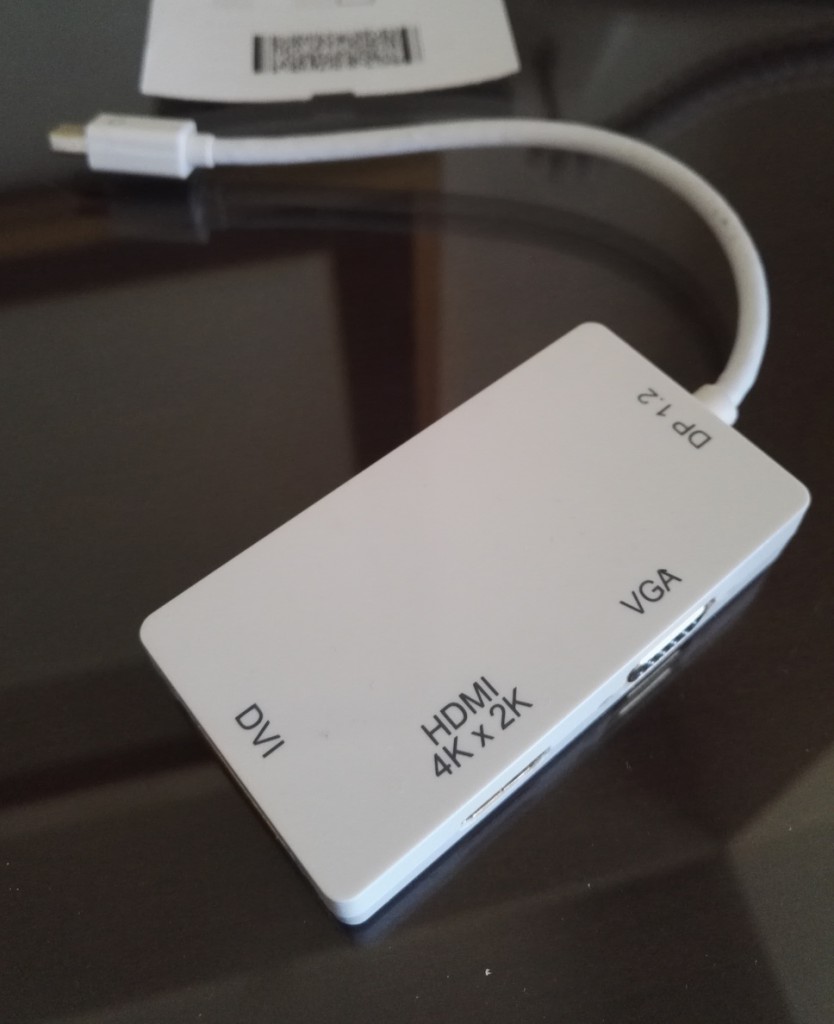Christian Heilmann: [Presenter tips] Gremlins in the machine – stage tech will fail |
In my role as a coach for other presenters I just ran into a common issue. A talented person giving their first talk and hating it. The reason: everything went wrong with stage technology. This lead to a loss of confidence and putting the blame on oneself. The irony was that the talk wasn’t in a place with tech issues, but in San Francisco. The wireless was not at all up to scratch. The presenter had planned for that: using a ServiceWorker powered HTML slide deck – state of the art what we consider bullet proof and highly portable. But there was no way to make the computer display on the big projector as there was no HDMI connection. That’s why they had to use someone else’s computer. None of the demos worked. Lacking experience, the presenter had a hard time describing what people should see. Furthermore, you don’t want to be the person to promise things without proving them.
There is no point in throwing blame. Of course, as a prepared speaker you should be able to do fine without your demos. But often we put a lot of effort into these demos and they excited us to write the talk in the first place. Of course the conference organiser should have all connectors and know about display issues. And of course the wireless should work in the middle of tech bubble central. Often conference organisers don’t control connectivity. They have to rely on venue installations and their promises. Shit happens. Time to learn from that. What can we as presenters expect and how can we prepare ourselves for Gremlins in the machinery?
I collected the following tips and ideas presenting at about 80 conferences in the last 4 years. In about 60 venues spread across the globe. So, if your experience was much better – lucky you. Fact is, that things go wrong all the time and often there is nothing you can do.
Let’s go back a bit. Van Halen required in their band contract to have a bowl of M&Ms in their room with all the brown ones removed. This has become a running joke when the topic is about entitlement and added to the “ridiculously needy rockstar” myth. The interesting part about this is that this rule served a purpose. Van Halen required a intrinsic stage setup to achieve their unique sound. Their rider describes the necessary stage tech in detail. The M&M rule at the end of the rider is a simple way of knowing if the concert organisers read and understood it. When there was no bowl in the room or it had brown M&Ms in it something was wrong. This needed fixing to avoid a disastrous concert.
The main difference between this story and presenting at conferences is that we’re not rockstars. We can’t demand the things they do, and – more importantly – we aren’t as organised as an industry. In far too many cases there is a massive miscommunication between conference organisers and presenters as to what is needed to give your talk. This is when bad things happen.
The perfect scenario: demand your lack of brown M&Ms
If your talk depends on a lot of things going right, be adamant about this in your talk proposal. Add reminders to your communication with the conference organisers. Outline in very easy to understand words what you need, as in:
- I will present from my own computer, a $machine, which means I will need a connector of type $dongle and a resolution of at least $pixelsbypixels.
- My slides are in the format of $aspectratio (4:3 or 16:9, you don’t want black bars)
- I will need audio available as my talk contains videos with audio and audio examples. Please provide the necessary cables.
Be there on time to set up and demand a dry run the day before. This could give you insight into issues and you can get them fixed before you go on stage.
Remember that in some cases, the conference organisers are not in charge. Make sure to get to know the venue AV and connectivity people and talk to them. Also make sure to find out which room you’ll be in and who will be there before you so you have time to set up. Connectivity and AV equipment can vary from room to room even in the same conference.
All this sounds like a lot of work – and it is. You made yourself dependent on your technology – it is up to you to ensure things go smooth. We don’t have roadies and riders for that.
Extra measures: know your issues and bring your own materials
As everything can go wrong, it is good to know the quirks and issues of your own hardware. It is prudent to ensure you bring everything you need:
- Power cables and local outlet connectors – especially for the MacBook Air. Older versions have the issue that on battery it uses a less powerful video chip than when connected to a main. This could make the difference of your screen showing up on a long VGA cable or not. You also don’t want your computer go to sleep on stage.
- Network dongle – wireless is likely to fail when used by a lot of people. That’s why conferences offer a wired connection on stage. This one is pretty useless unless you also bring your wired dongle. If you only have one USB port, also bring a splitter/hub.
- Remote control – this is not a need, but they are useful and not every conference has one. You also get a free laser pointer which comes in handy if you encounter kittens.
- Display dongle – this is the big one. Make sure that you have a connector from your computer to all kind of display cables. Smashing conference gave out some great ones as speaker gifts:
Bulletproofing measures: have a fallback
The main thing I learned on my travels is to ensure your talk materials are available.That’s why you need a format that means whatever goes wrong, there is still a way out:
- Be prepared to provide your slides in different aspect ratios — quite often I had to change my slights and both Keynote and Powerpoint make a pig’s ear out of this.
- Don’t use the full screen in your slides — almost every time I presented the projector cut off some part of the screen. Add a large margin around your content and all will be visible.
- Have high contrast and large fonts in your slides — lighting is often a mess at conferences and people need to be able to read even in the back.
- Demos and examples have to work offline and have no online dependencies – if you’re showing off an API, keep cached local results.
- Create screencasts of your demos – it allows you to talk over them without running into connection issues. You won’t have slow loading pauses. You don’t have to type things in / authenticate from a wonky wireless. Make sure to have the videos embedded in your materials but as video files. A few times powerpoint/keynote failed to show the videos, so I used VLC to save the day.
- Put all your materials online – this allows you to reach them in case your hardware goes down. And it means people can get to them later.
- Keep your materials on a USB stick – if you need to use another computer it is a simple way to shift them. Make sure that dependencies you rely on are also on this stick.
Special circumstances: help the conference organisers
Often I found that as a presenter, you have to follow some rules you don’t like when it comes to stage technology. It is up to you to stand your ground and demand what you want to have. Or you could swallow your pride and reach audiences you might not reach otherwise. Here are a few things I encountered that are against my ideas of what I want to do as presenter but made sense:
- Universities needed the slides to be in Powerpoint. They also needed them running from a fixed computer in the lecture hall. The reason was that the machine was Windows XP. The AV was part of the room and the machine recorded and archived all talks.
- International conferences offer live translation. It is much easier for translators to have your slides upfront in a printed format. It allows them to annotate the talk and ensure that they keep technical terms English.
- The last point becomes even more important when there is live sign translation at the event. Signing works by translating the meaning of whole sentences. Not letter by letter or word by word. Having the material upfront makes this much easier.
- Some places don’t allow unverified hardware to access the network or connect to a projector. I’ve had government sites that were on total lockdown.
Leveling up: know your story, have your resources
Do yourself a favour and strive to liberate yourself from your demos and slides as a presenter. You will be able to do much more exciting work when your presentation is your wallpaper. You are the show and the source of information. It is exciting to see technical things going right. Many are hard to repeat for the audience and they are more of a show than an educational moment.
Instead, point to materials, show what they do and how people can use them. Tell the story of the materials and how they can make the life of your audience better. If that is what you convey, even a power cut won’t make a difference. You present and educate, you don’t run a demo.
| Комментировать | « Пред. запись — К дневнику — След. запись » | Страницы: [1] [Новые] |









